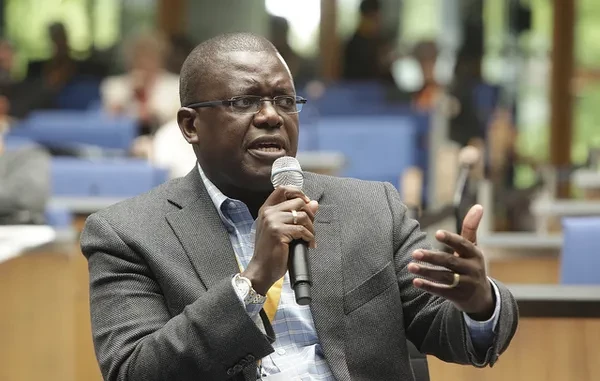
On Independence Day – 18 April 1980 – Zimbabwe was a war-torn nation after a painful liberation struggle that had played out in the previous decade. That war had claimed an estimated 20 000 lives – some say the figure is understated – and left the country divided along a number of fissures. It was a nation in need of repair.
Robert Mugabe, who was voted the first Prime Minister of the new nation, soothed tempers somewhat with his inauguration speech. He gave comfort to beleaguered compatriots and a worried international community that was wary of a guerrilla outfit, with no experience of statecraft, taking over the reins of power in a country that needed bridges to build urgently across racial, tribal, ideological and international chasms.
In his landmark speech Mugabe pleaded for peace and unity: “Surely it is now time to beat our swords into ploughshares so we can attend to the problems of developing our economy and our society.”
Four decades later, Zimbabwe finds itself in an uncannily similar predicament. The country, like in 1980, does look and feel like it has just emerged out of a debilitating war. The nation is torn apart on account of our political differences and the terrain resembles war debris. Paralysis, polarisation and hate characterises national discourse.
The nation cries out for bold leadership that puts the national public good above all else. The widows, the orphans and the poor are crying out loudly and clearly for rescue. Their numbers have swelled on account of our political differences that have rendered them nothing but collateral damage. The silent majority is hurting from the economic turmoil and collapse visited upon it by the often senseless disagreements that define our politics. Where are the statesmen/women who will step forward and repair the nation?
With the benefit of hindsight, Mugabe’s words ring in our ears like an echo – more than at any other time in Zimbabwe’s political trajectory – swords need to be beaten into ploughshares.
Words are important in nation building but action is even more critical. Mugabe went on to say: “I urge you, whether you are black or white, to join me in a new pledge to forget our grim past, forgive and forget, join hands in a new amity, and together as Zimbabweans, trample upon racialism, tribalism and regionalism, and work to reconstruct and rehabilitate our society as we reinvigorate our economic machinery.”
A second attempt at national reconciliation is what Zimbabwe needs to take us from this ugly place towards a common purpose and, hopefully, the prosperity that our country has so much potential for. Only this time truth telling must be a key part of the reconciliation process so that we never visit this ugly place ever again.
- Mavhunga puts DeMbare into Chibuku quarterfinals
- Bulls to charge into Zimbabwe gold stocks
- Ndiraya concerned as goals dry up
- Letters: How solar power is transforming African farms
Keep Reading
Mugabe’s words on inclusivity and statesmanship still stand: “My party recognises the fundamental principle that in constituting a government, it is necessary to be guided by the national interest rather than by strictly party considerations.”
At this moment what Zimbabwe needs cannot be achieved by one person or one political party. The ruling Zanu PF is too divided, corrupt and politically bankrupt to take sole charge of this project. The opposition has been reduced largely, to one man surrounded by noisy and insult-hurling sycophants without a national vision. The country yearns for visionary and courageous statesmen/women determined to build for the long term.
We are stuck in political quicksands and politics alone will not help. The gulf of our political differences continues to widen and no amount of ruling party denialism and opposition bravado will build the necessary bridges. The longer the nation building project is postponed, the more protracted and painful it will be when it eventually gets underway. Nation building is an onerous enterprise that needs all hands-on deck.
It is not too late for President Mnangagwa to rise above #thisandthatforED and do the tough but crucial job of leading all Zimbabweans. It is not too late for Nelson Chamisa and all those in opposition to cast away student-activist politics, grow up and focus on building a resilient nation for all.
Reconciliation with our former oppressors was a tough but necessary investment. For the sake of our nation and for posterity, the second reconciliation under present circumstances is worth trying. Its dividends of peace, unity and prosperity are worth the effort.










